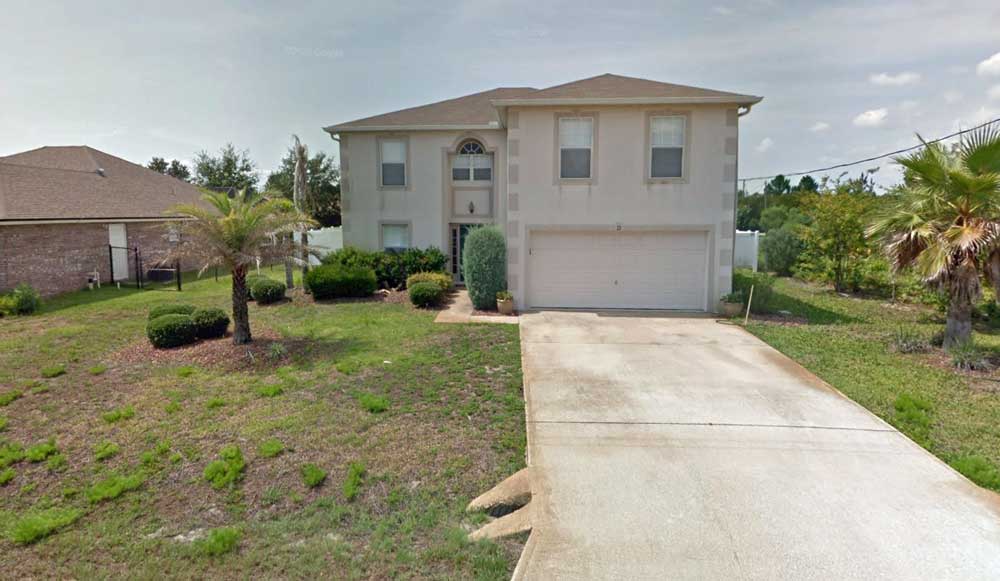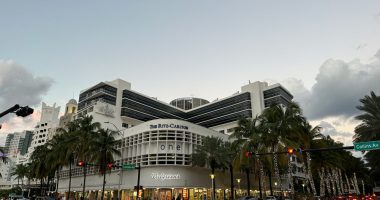
As resident after resident complained about short-term renters next door–the noise, the partying, the traffic, the garbage, the unexpected–the Palm Coast City Council chambers Tuesday evening sounded more like a scene transplanted from the County Commission a decade ago, or legislative committees in Tallahassee every year since.
But the legislature just passed a law that forbids cities like Palm Coast from imposing stricter regulations on vacation rentals than they would on permanent residents.
“We have an influx of short term rentals, all these Airbnbs have completely surrounded us,” a C-Section resident of 20 years who lives off of Cimmaron Drive told the council, the first of many tolling that complaint. “I want to know why they don’t have to notify the neighbors that hey, we’re opening a business right next to your house. Because right now I have one directly behind me and right next to me.
“The noise from these businesses, day and night, seven days a week, there are people partying, 7:30 in the morning, dogs just barking incessantly. It doesn’t stop. The parties, the screaming, the yelling, there’s rap music, foul language, drinking, and most recently, drug use. The mounds of garbage that they leave behind are like liquor cases.”
She said there were eight cars parked at the house next door last week. She’s called the Sheriff’s Office, she’s called the fire department to alert authorities about occupancy exceeding limits. The two owners of the vacation rentals live out of the county. The neighborhood, she said, is ruined.
So it went, speaker after speaker, repeating the very stories, the very phrases really, that had been spoken in the well of the Government Services Building to the County Commission in 2012 and 2013, by residents of the Hammock.
Flagler County government took care of the problem when it successfully lobbied lawmakers for two years in 2013 and 2014. That year, a law returned authority to local governments to regulate short-term rentals–an authority the Legislature had taken away in 2011. That 2014 law was translated into a Flagler County ordinance that quelled the most egregious abuses of short-term renters while still giving property owners the freedom to rent out their homes, or sections of their homes, in a booming vacation-rental industry.
Grandfathered properties aside, Flagler County could regulate occupancy, limiting it to 10 occupants, it could conduct fire safety inspections and require strict adherence to traffic and garbage controls, and impose a registration fee that has helped defray the cost of inspections and enforcement. The local regulations have not stopped the county from being a favored vacation-rental destination.
As of January, there were 652 single-family homes used as vacation rentals in the county, according to the Tax Collector’s quarterly data, 774 condos, town homes or duplexes used to that end, and 45 dwellings only partially used for rentals. Of that total, Palm Coast had 506 vacation-rental properties, Flagler Beach had 198 and unincorporated Flagler County had 809, a majority of those in the Hammock, which had been ground zero of the vacation-rental wars.
Every year since 2014, however, the vacation-rental industry lobbied lawmakers with growing intensity to roll back the 2014 regulations. Finally, this year, the industry succeeded. Lawmakers approved a law that all but eliminated local authority, even as the wording of the law made it appear that local governments could still enforce regulations.
But it’s doublespeak. While the new law allows counties and cities to regulate vacation-rentals, the governments are prohibited from imposing any regulation on those vacation rentals that do not apply to other residents. In other words, Palm Coast is prohibited from inspecting a vacation rental if the city is not also inspecting all other dwellings in the city, and applying the same standards uniformly. In essence, the state law gives regulatory authority on paper while taking it away in fact, since no local government has the resources to inspect all its dwellings–let alone the political will to intrude on permanent residents as if they were vacation renters.
The new law had one exception: Flagler County. Thanks to Rep. Paul Renner, the speaker of the house, Flagler County’s existing ordinance got a carve-out of its own. It was allowed to be grandfathered in, remaining intact and in force. Flagler Beach has been grandfathered since 2011, so it’s also unaffected. But the majority of counties and cities, including Palm Coast, are out of luck. They have to put up with sprawling vacation rentals with little to no regulatory authority. The county’s ordinance has no effect within city limits.
That doesn’t mean the rentals may not be policed: residents may call in complaints about noise and traffic and garbage, but the city has to respond on a per-case basis. Without authority to impose stricter regulations on the rentals, the city will be faced with an increasing amount of complaints, which it will have to address through Sheriff’s Office policing and Code Enforcement.
“Our hands are tied” was the most frequent response Palm Coast residents heard from the City Council Tuesday evening. And every person who complained was referred to the new law that robbed localities of the authority to do more.
“The max that we can really do at this point as a city, unfortunately, is enforce our own code with regards to parking and noise,” Council member Theresa Pontieri, an attorney, said. “Unfortunately, we’re preempted by the state county with regards to anything else that we can do. So really just want to encourage code enforcement to stay on top of these issues for the benefit of our residents since our hands are tied otherwise.”
But Palm Coast’s hands weren’t always tied. It’s not this council’s fault. But previous councils could have adopted an ordinance identical to the county’s. Had it done so, it could have used the same Renner leverage to ensure that its ordinance would be grandfathered in. The city chose to do nothing over the years. That lack of vision is what has now allowed the cicada-like vacation-rental phenomenon to emerge. Those cicadas are not going away.
Nor will the complaints.
“We are also surrounded by Airbnbs, we’re suffering from the same problem,” another C-Section resident told the council Tuesday evening, citing light and noise pollution and asking for a restriction on number of occupants and more stringent controls on light pollution. But the new law preempts both.
“I’m sure there is a huge burden of unnecessary effort being placed on the local police,” the resident said. “We had to call the police twice on Sunday evening to come and ask them to stem down the noise and to calm down and give us some peace.”
One resident cited an Airbnb next door advertising capacity for 15 people, one set of renters putting in a slip-and-slide for eight children.
To all that, Mayor David Alfin asked the city manager to draft a summary of the new state law and distribute it to council members “so we’re all up to speed on what can and can’t be done at this point in time.” The council intends to hold a broader discussion on the problem in coming weeks.
![]()









